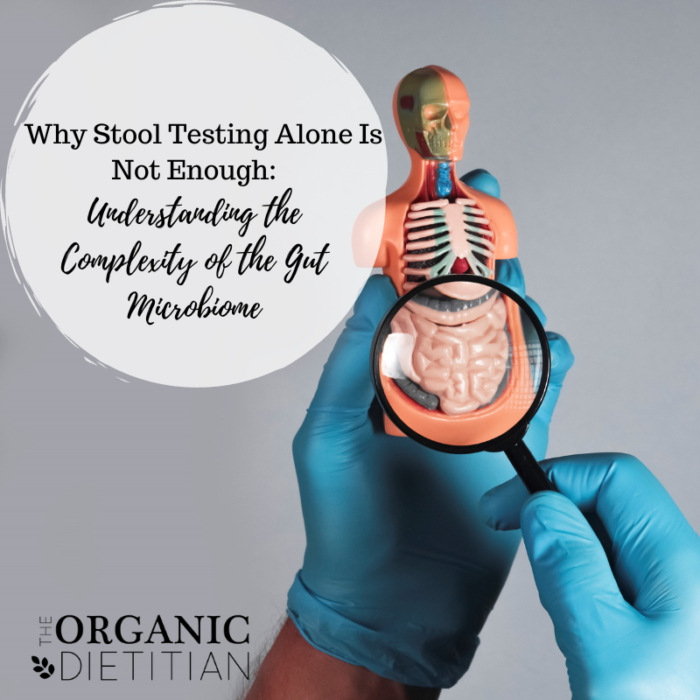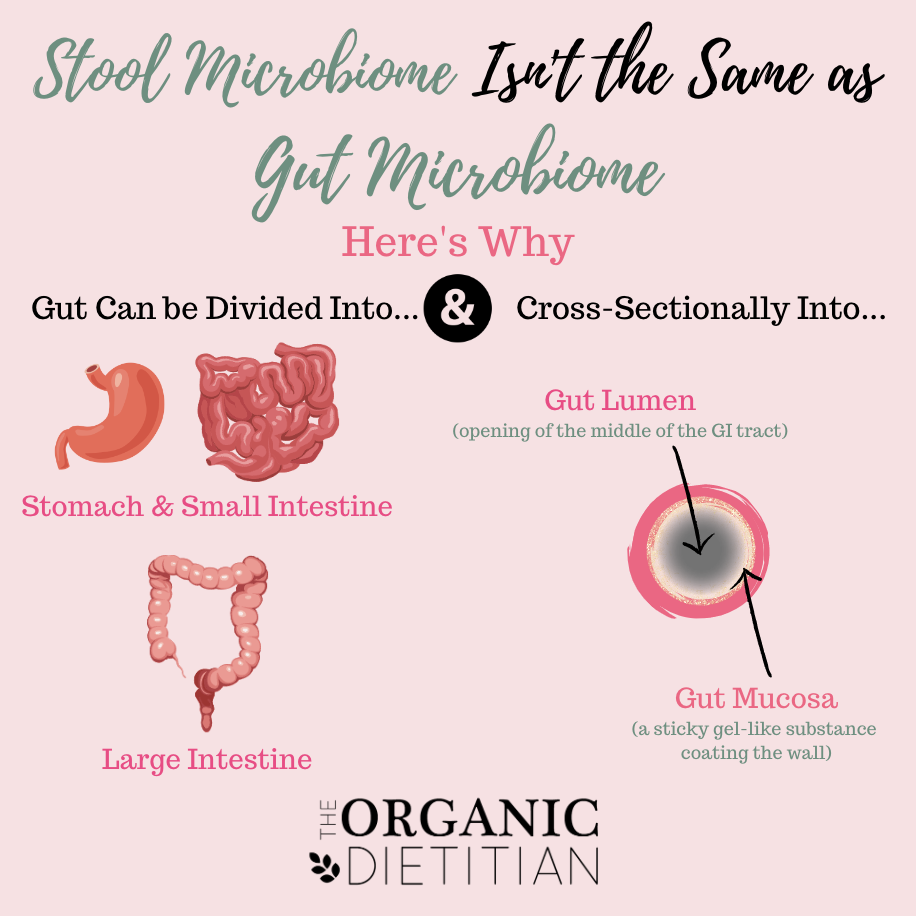1 October, 2023
Why Stool Testing Alone Is Not Enough: Understanding the Complexity of the Gut Microbiome

In recent years, functional medicine has surged in popularity, leading to an increasing dependence on expensive lab tests to identify the root cause of health issues. While lab tests have their place in functional medicine, they should not be regarded as the be-all and end-all of the healing process in most cases. This is especially true regarding stool tests, which have become the go-to test for many functional medicine practitioners.
However, as we will see in this blog post, relying solely on stool tests to address chronic health issues, even when accompanied by gut symptoms, can be misleading and undermine the true principles of holistic, natural, and functional medicine. In this post, we explore the limitations of stool tests and shed light on what functional medicine should focus on to promote optimal health and well-being.
I Was Taught Stool Testing Helped Get to the Root Causes
I will be the first to admit that when I started as a wellness practitioner, I was taught that running many labs, including comprehensive stool tests, was critical to helping clients heal. I was then taught how to create customized supplement protocols to address the findings. Some clients did find relief with this approach (at least for the short term), and others did not.
I take my job very seriously, and being a skilled health practitioner takes consistent learning, practicing, and honing skills to become dynamic at it. I became doubtful and apprehensive about spending so much of my client’s money on labs and supplements. Plus, I started to see clients coming to me already trying this approach, yet we were still struggling. The labs and supplements used to work were no longer as effective, and client cases became increasingly complex. There had to be a better way. Was there something I was missing?
There absolutely was something missing—huge things. Want to learn what I am talking about?
Watch our FREE on-demand training HERE.
Why Stool Testing Can’t Fully Assess Our Microbiome
Stool testing is a standard method for assessing the gut microbiome; however, it has limitations. The gut is a complex system that can be divided into different segments, including the stomach, small bowel, and large intestine. While each area has its own unique microbiome, stool testing can only mostly assess the bacteria found in the large intestine at the time of the testing. Therefore, it cannot provide a comprehensive picture of the overall health of the gut microbiome.
The gut can also be divided into two cross-sectional areas: the gut lumen (internal wall) and the gut mucosa (GALT/immune system). Gut-associated lymphoid tissue ( GALT) is a component of the mucosa-associated lymphoid tissue (MALT), which works in the immune system to protect the body from invasion in the gut. Owing to its physiological function in food absorption, the mucosal surface is thin and acts as a permeable barrier to the body’s interior. Each area harbors unique microbes, which can vary significantly. Studies have shown that samples obtained from the stool, gut lumen, and gut mucosa have unique microbes. Interestingly, the gut microbes associated with the mucus layer differ from those found in the lumen and stool samples. This highlights the complexity of assessing the gut microbiome using stool testing alone.
Moreover, researchers have found that the human gut mucosal microbiome only partially correlates with stool testing. This finding indicates that stool testing alone can’t provide a complete picture of the gut microbiome. Consequently, the results may not accurately represent the overall health of the gut microbiome.

While stool testing may help identify certain gut bacteria, it has limitations. For example, most chronic bugs reside in the lumen of the small intestine, and parasites mostly live in the lumen wall. These microorganisms can often go undetected using stool testing, emphasizing the need for more comprehensive methods of assessing gut health.
In conclusion, stool testing is only one tool in assessing gut health and has limitations. While it may identify certain bacteria, it cannot provide a complete picture of the gut microbiome. Therefore, we must look beyond just stool testing to get answers to our health issues and dig much deeper to discover not only the true root causes of digestive problems but also look at habits to help build health if we want long-lasting health.
Related Blog Posts: Nervous System, Trauma, and Gut Health: What’s the Connection?
Related Blog Post: The 3 Primary Root Causes of ALL Chronic Dis-ease
Learn more about how I now work with clients without stool testing HERE.
How to Get Support?
If you are a wellness coach or practitioner who works with clients who have autoimmune diseases, it is important to become trauma-informed and skilled. The Wellness Code Academy practitioner certification program is a dynamic, trauma-informed, beyond-the-biochemical, and truly holistic coaching system that takes…
This is the deepest dive ever into healing the gut, brain, nervous system, and mitochondria. It also taps into the power of the subconscious mind to support healing the psyche. Learn more HERE.
Learn more about my approach with clients: My Health and Healing Philosophy.
I believe ANY HEALING JOURNEY ultimately needs to involve addressing BOTH the body and the mind in the proper way and in the proper order, which will be highly individual.
It is also a huge reason why many feel stuck on their healing journeys: this concept hasn’t been adequately acknowledged, understood, or addressed.















 80% of chronic dis-ease is rooted in stre
80% of chronic dis-ease is rooted in stre
 As
As 
